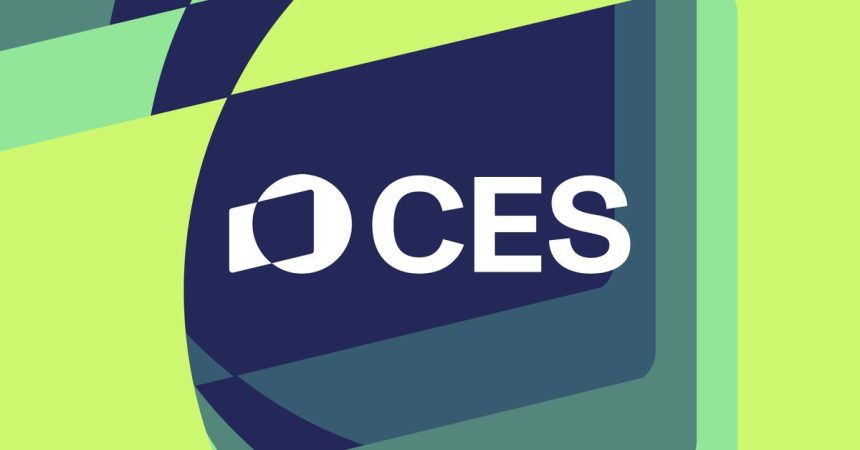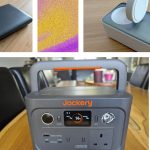Televisions: The Era of Giant Screens and AI Integration
The 2025 Consumer Electronics Show (CES) promises a dazzling display of television technology, with two prominent trends taking center stage: ever-increasing screen sizes and the pervasive integration of artificial intelligence. Consumers’ growing preference for larger screens, particularly in the 75-inch and above range, will be catered to by major manufacturers like Samsung, LG, TCL, and Hisense, showcasing massive OLED and Mini LED models. Beyond sheer size, AI will be the undeniable buzzword, permeating every aspect of the TV experience. Building on existing AI-powered features like automatic picture and audio adjustments, the industry is poised to introduce chatbot integration, mirroring the widespread adoption of AI assistants like ChatGPT and Microsoft Copilot. This shift could transform the television into a central hub for interactive communication and personalized content delivery. While Samsung and LG are expected to lead the charge, the industry is also eager to witness innovations from other players, such as Panasonic, which made a successful re-entry into the US market last year.
Smart Home: A Connected Ecosystem Powered by Matter and AI
CES 2025 is set to be a watershed moment for the smart home, with a plethora of new gadgets and innovations anticipated. Companies like Aqara, Nanoleaf, and Lutron, among others, will showcase a wide array of connected devices, leveraging the unifying power of the Matter standard. This interoperability promises a seamless and integrated smart home experience, paving the way for more sophisticated automation and control. Smart locks are a particular area of focus, with the upcoming Aliro standard poised to revolutionize home security and access control. Beyond individual devices, the show will likely feature new control interfaces, possibly taking inspiration from Amazon’s Echo Hub, offering intuitive touchscreens for managing various aspects of the smart home. Robotics, particularly in the realm of vacuum cleaners, will continue to advance, with companies like Ecovacs and Roborock pushing the boundaries of autonomous cleaning. Finally, energy management will be a recurring theme, with AI-powered Home Energy Management Systems (HEMS) emerging as a key tool for optimizing energy consumption and cost savings.
Automotive: A Quieter Year with Focus on Existing Innovations
Compared to previous years, the automotive presence at CES 2025 is expected to be more subdued, with several major automakers opting out. Much of the anticipated news, such as updates on the Sony-Honda Afeela EV project, has already been pre-announced. However, Honda will unveil further details about its Honda Zero lineup, teasing new electric vehicles with futuristic designs. BMW will also showcase its "Neue Klasse" platform, featuring a new panoramic iDrive display and operating system. The overall slowdown in automotive announcements could be attributed to the prevailing uncertainties surrounding the EV market, including potential tariffs and reduced incentives. Despite this, commercial vehicle manufacturers like John Deere and Oshkosh are expected to make significant announcements, highlighting the ongoing electrification of various industries.
Laptops: Next-Gen GPUs and the Continued Hype of "AI PCs"
The laptop landscape is bracing for a wave of innovation at CES 2025, driven by advancements in processors and graphics. While new Intel Arrow Lake and AMD CPUs will be on display, the spotlight will likely be on Nvidia’s next-generation 50-series GPUs. These new graphics cards are expected to deliver a significant performance boost, particularly for gaming and content creation. AMD is also rumored to unveil its RDNA 4 GPUs, potentially challenging Nvidia’s dominance in the high-end graphics market. Integrated graphics are also set to receive a major upgrade, with AMD’s Strix Halo processor promising performance comparable to Nvidia’s RTX 4060 GPU. This could lead to thinner and lighter laptops capable of handling demanding tasks. Alongside these hardware advancements, the industry will continue to emphasize "AI PCs," although the practical applications of this technology remain somewhat limited, often focusing on automated tasks and chatbot integration.
Gaming: The Dawn of New GPUs and the Rise of Gaming Handhelds
PC gaming enthusiasts have much to anticipate at CES 2025, with both Nvidia and AMD poised to unveil their next-generation GPUs. Nvidia’s RTX 50-series graphics cards are rumored to feature "neural rendering" and enhanced DLSS technology, potentially revolutionizing gaming visuals and performance. AMD’s RDNA 4 GPUs, including the anticipated Radeon RX 9070 XT, will aim to compete with Nvidia’s offerings, potentially accompanied by the launch of FSR 4, AMD’s AI-powered upscaling technology. Alongside GPUs, CES will showcase a plethora of new gaming laptops, powered by the latest Intel and AMD CPUs. The proliferation of high-refresh-rate OLED monitors, from manufacturers like Asus, Samsung, and MSI, further enhances the gaming experience. Finally, handheld gaming devices are gaining momentum, with Lenovo expected to launch a SteamOS handheld, challenging Microsoft’s presence in the portable gaming market.
Smartphones and Beyond: The Emergence of "Not-Phones" and AI Integration
While CES has diminished in its significance as a smartphone launchpad, the 2025 show is expected to highlight the rise of "not-phones" – devices that complement smartphones by offering specialized functionalities. These include smart glasses, e-ink readers, and other gadgets that cater to specific needs without attempting to replace the smartphone entirely. AI will undoubtedly be a pervasive theme, with its integration extending to various product categories, from refrigerators to wearables. The focus will likely be on practical AI applications rather than gimmicky features. In the wearables segment, smart glasses, AR headsets, and AI-powered wearables are expected to take center stage, building on the momentum gained in 2024. Health tech will continue its focus on remote monitoring and OTC hearing aids, with some companies potentially showcasing innovative, albeit possibly unrealistic, concepts like noninvasive blood glucose monitoring. Beauty tech, a growing category targeting women, will also likely see further development and innovation.



